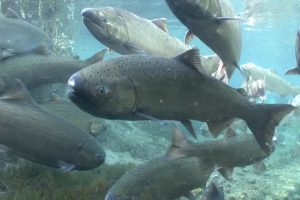 An indictment from a federal grand jury in Alaska has been issued, accusing the owner and captains of two crab catcher vessels of unlawfully transporting crab from Alaska, a violation of the Lacey Act.
An indictment from a federal grand jury in Alaska has been issued, accusing the owner and captains of two crab catcher vessels of unlawfully transporting crab from Alaska, a violation of the Lacey Act.
According to legal documents, Corey Potter is identified as the owner of two fishing vessels. Justin Welch and Kyle Potter serve as the captains. Between February and March of 2024, these vessels amassed a haul exceeding 7,000 pounds of Tanner and golden king crab in Southeast Alaska. Corey Potter allegedly instructed Kyle Potter and Justin Welch to transport the crab to Seattle, Washington, in an effort to fetch a higher price than that which could be obtained in Alaska. Neither captain docked the harvested crab at an Alaskan port, failing to document the harvest on a fish ticket, as mandated by state law.
Reportedly, the crab was transported through Canadian and Washington waters. Upon reaching Washington, a significant portion of the king crab was discovered to be dead or unsuitable for sale. Corey Potter purportedly admitted that some of the crab on board was afflicted with Bitter Crab Syndrome (BCS), a fatal parasitic disease affecting crustaceans. An additional 4,000 pounds of Tanner crab was allegedly disposed of due to the risk of BCS contamination. Legal documents contend that had the crab been correctly landed in Alaska, the harvest would have been inspected, and infected crab would have been identified and discarded before departing from Alaska.
 Watchstanders at U.S. Coast Guard Sector Puget Sound were notified around 6 a.m. that the 48-foot F/V CHIEF JOSEPH, was in distress and taking on water. Aboard the vessel was one individual and a dog. The pair evacuated the vessel using a life raft.
Watchstanders at U.S. Coast Guard Sector Puget Sound were notified around 6 a.m. that the 48-foot F/V CHIEF JOSEPH, was in distress and taking on water. Aboard the vessel was one individual and a dog. The pair evacuated the vessel using a life raft. Maritime Injury Law Blog
Maritime Injury Law Blog











